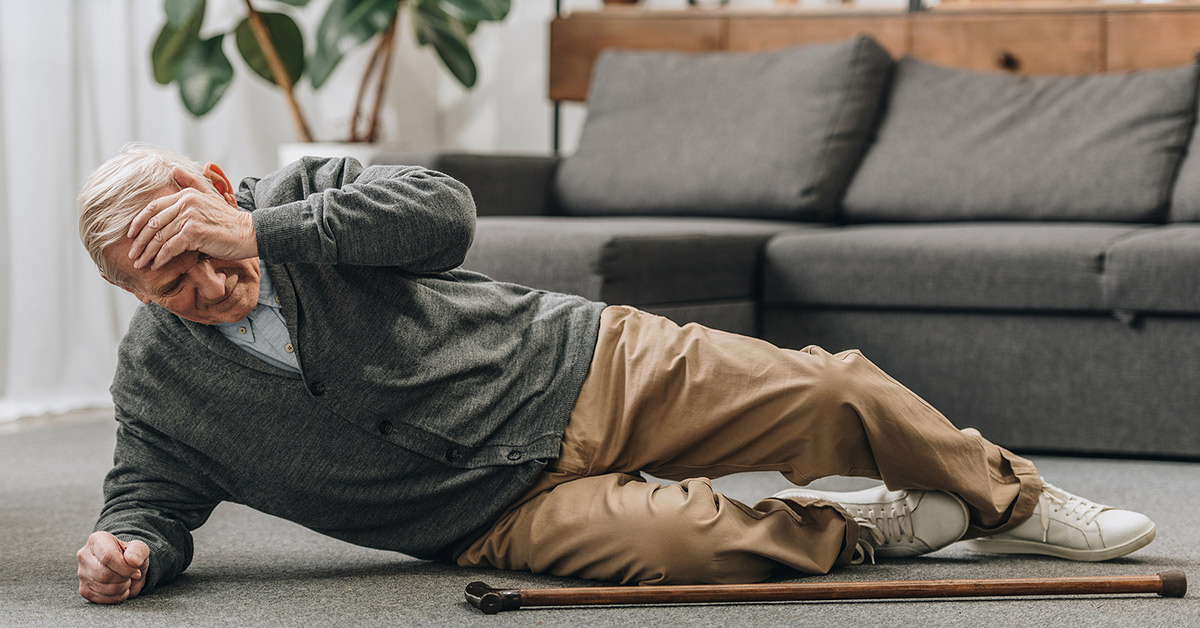As we age, maintaining independence becomes increasingly important. However, one of the significant risks to senior independence is the occurrence of falls. In this article, we explore how falls impact senior independence and the steps that can be taken to mitigate these risks.

The Prevalence of Falls Among Seniors
Falls are a common occurrence among the elderly. According to the National Council on Aging, one in four Americans aged 65 and older experiences a fall each year. This statistic highlights the widespread nature of this issue and the need for effective prevention strategies. You can read more about this on the National Council on Aging website.
Causes of Falls in Seniors
Understanding the causes of falls is crucial in preventing them. Some common causes include poor lighting, slippery surfaces, and health conditions that affect balance and mobility. Medications can also play a role in increasing fall risk.
Environmental Hazards
Environmental factors such as cluttered walkways and uneven flooring are significant contributors to falls. Ensuring a safe home environment is essential for fall prevention. For guidance on fall-proofing your home, visit this fall detection guide.
Health-Related Factors
Chronic conditions like arthritis, diabetes, or neurological disorders can impair balance and coordination, making seniors more susceptible to falls. Regular health check-ups can help manage these conditions effectively.
The Consequences of Falls
Falls can lead to severe injuries, including fractures and head trauma. Such injuries can result in prolonged hospital stays and a significant reduction in mobility. The impact of a fall extends beyond physical injuries, affecting the psychological well-being of seniors as well.
Physical Injuries
Common injuries from falls include hip fractures and head injuries. These injuries often require extensive medical treatment and rehabilitation, which can be daunting for seniors.
Psychological Impact
The fear of falling again can lead to anxiety and a decrease in activity levels, further impacting a seniors independence. This fear can result in social isolation and depression.
Maintaining Independence After a Fall
While falls can be detrimental, there are ways to maintain and even regain independence after experiencing a fall.
Rehabilitation and Therapy
Engaging in physical therapy can help seniors recover strength and balance. Occupational therapy can also assist in adapting daily activities to ensure safety. Non-wearable fall detection systems can provide an added layer of security.
Support Systems
Family support and community resources play a vital role in helping seniors regain confidence. Encouraging participation in social activities can also promote mental well-being.
Preventing Falls and Promoting Independence
Prevention is key in reducing the risk of falls. Implementing safety measures and staying active are effective strategies.
Home Safety Modifications
Simple changes such as installing grab bars, improving lighting, and removing tripping hazards can make a significant difference. For more tips, visit this fall detection importance guide.
Encouraging Physical Activity
Regular exercise improves strength and balance, reducing the likelihood of falls. Activities like walking, swimming, and yoga are excellent options for seniors.
The Role of Technology in Fall Prevention
Advancements in technology have introduced innovative solutions for fall prevention and detection.
Wearable and Non-Wearable Devices
Devices such as smartwatches and sensors can detect falls and alert caregivers. These technologies provide peace of mind for both seniors and their families. Explore the options available in our fall detection with GPS tracking article.
Telehealth Services
Telehealth services allow seniors to consult with healthcare providers from the comfort of their homes, ensuring they receive timely medical advice and support.
Conclusion
Understanding how falls impact senior independence is essential in addressing this prevalent issue. By implementing preventive measures and utilizing available resources, seniors can continue to lead active and independent lives.

FAQs
What are the main causes of falls in the elderly?
Falls in the elderly are often caused by environmental hazards, health-related factors, and medication side effects.
How can seniors prevent falls at home?
Seniors can prevent falls by making home safety modifications, staying physically active, and using assistive devices as needed.
What should I do if a senior experiences a fall?
If a senior experiences a fall, seek medical attention immediately and assess the home for potential hazards to prevent future incidents.
This article contains affiliate links. We may earn a commission at no extra cost to you.

